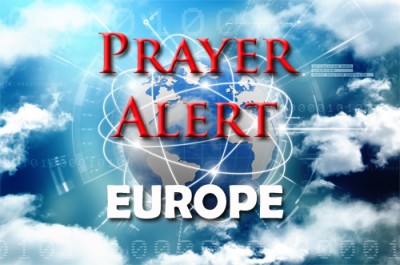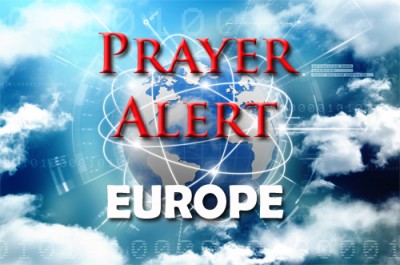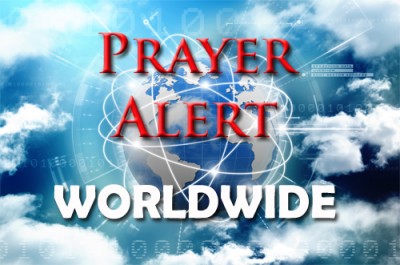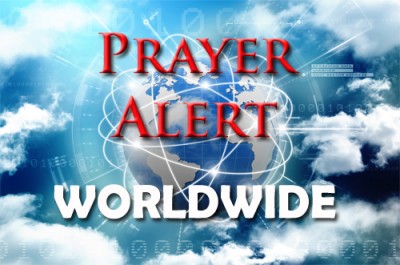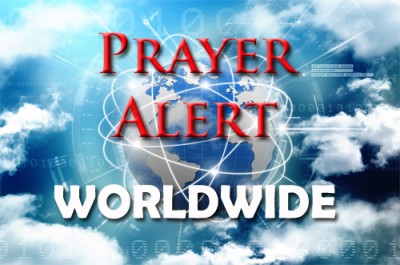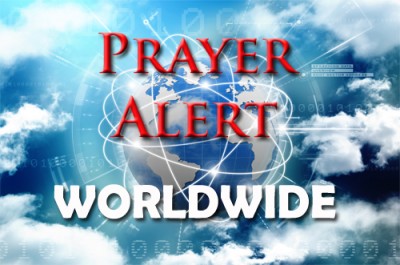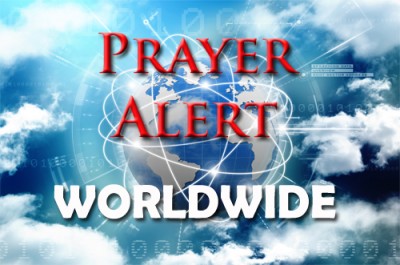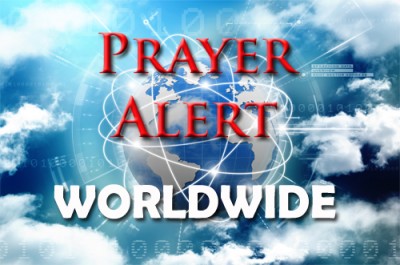Turkish Islamic Institute for Religion (DITIB)
04 Nov 2016The Turkish Islamic Institute for Religion (DITIB) has 900 mosques in Germany that are supported directly by Turkey. The Turkish state pays the imams in Germany and dictates their sermon content, and Islam lessons are officially on Germany’s school curriculum. DITIB can participate in the development of lesson plans and supply teachers. President Erdogan exercises political influence on the Muslim population in Germany through DITIB. Worryingly, a recent DITIB publication glorified Islamic jihad. Also a Protestant minister speaking after this year’s Berlin March for Life said, ‘Never has a Christian event been so fiercely attacked from start to finish.’ Another commentator has said, ‘Massive disruption by left-wing extremists remains unchallenged by public officials. Politicians are ignoring the right of freedom of religion for Christians. Physical attacks on churches, cemeteries and open-air crosses and verbal attacks against the Christian faith by left-wing extremists and anti-Christian groups are on the increase.’ See also:
Amnesty highlights EU abuse of refugees
04 Nov 2016Amnesty International alleges that ill-treatment and unlawful expulsions of migrants amount to torture. People have suffered beating, electric shocks and sexual humiliation at the hands of Italian police after resisting having their fingerprints taken. Amnesty’s report makes a clear link with pressure from EU leaders and institutions to set up so-called ‘hotspots’ to process migrants. In their determination to reduce the onward movement of people to other member states, EU leaders have driven Italian authorities beyond what is legal.
International Days Of Prayer (IDOP) this month
04 Nov 2016On 6 and 19 November, millions of Christians around the world will unite in prayer for the persecuted church. Approximately 100 million Christians globally face persecution daily. They face routine harassment and often suffer in silence and isolation. Over the years, the IDOP has been a platform to highlight their stories, advocate their plight, and encourage prayer; this brings solidarity and encouragement to persecuted Christians by reminding them that they are part of a larger, global family of believers. We can join millions this Sunday and again on the 19th, and ask the God of the nations to strengthen and deliver His suffering saints. Today we can pray for even more people this year to hear about this initiative, and for those in sorrow to experience triumph in the face of the enemy. Pray that in spite of persecution, wherever they are in the world, our brothers and sisters in Christ will be strong in their faith, holding on to God and His promises.
Syria: keep praying
04 Nov 2016The Russian aircraft carrier Admiral Kuznetsov, flagship of the Russian fleet, entered the Mediterranean last weekend, with a long stream of media interest. It is a symbol of Russia’s intention to influence events in Syria, with its land-based aircraft already there. Between 8 November and 20 January, there is a danger that power in Washington will be at a standstill. It is the time between the next presidential election and his/her inauguration. Key international decisions will not be made during that period. If the US administration changes, its non-interventionist policy may also change. Hillary Clinton supports a no-fly zone over Syria. Donald Trump has many friendly contacts in Russia. We can pray for Russia to resist the temptation to take advantage of America’s season of change, and not to act more aggressively in the region of Aleppo. If the next American president decides to act more forcefully, they could deploy an aircraft carrier to the region within a few days.
Global oppression
04 Nov 201623% of the world’s population cannot exercise their most basic rights of expressing views, assembling peacefully or organising meetings independently. Citizens who assert their rights suffer harassment and imprisonment, and are subjected to physical or psychological abuse. In Belarus, President Lukashenko is Europe's last dictator, showing no sign of bowing to Western pressure to relax his grip on the country. Chechnya: former rebel Ramzan Kadyrov heads the Republic and is personally implicated in instances of torture and murdering those opposed to him. In China, human rights activists face imprisonment, detention, torture, commitment to psychiatric facilities, house arrest, and intimidation. Cuba’s government represses individuals and groups who criticise them or call for basic human rights. Other countries which are ruled by force or laws that put unreasonable limits on people’s freedom are Equatorial Guinea, Eritrea, Laos, Libya, Myanmar, North Korea, Saudi Arabia, Somalia, Sudan, Syria, Tibet, Turkmenistan, Uzbekistan, Western Sahara, and Zimbabwe. In almost all of these countries Christians are persecuted, and are often treated worse than any other citizens.
US Christians praying for election
04 Nov 2016Our American brothers and sisters in Christ are praying for the coming election next Tuesday. Since early voting started last month, there has been a prayer surge through National Prayer Conference Calling, partnering with Christ for Revival. There have been weekly Saturday morning joint prayer meetings across the USA, with the heart of John 17:20-23. Intercessors across America have been making three-hour national conference call prayers in advance of Election Day. We can also cover this election in prayer, interceding for the election of President, members of Congress, the Senate and other elected officials. The apostle Paul linked these prayers to the peace of a nation, ‘that we may live peaceful and quiet lives in all godliness and holiness’. See also
Zimbabwe: economic crisis looming
04 Nov 2016Against all financial and economic logic, the Zimbabwean government is about to introduce bond notes into the financial system. Many believe this will wreak havoc with the economy, and that the poor and downtrodden will suffer. Zimbabwe imports 75% of all industrial, manufacturing, agricultural and food requirements. The governor of the Reserve Bank of Zimbabwe, in his monetary statement published a few days ago, admitted that the state of the country’s financial health is very depressing and disturbing; he stated that it has less than one month’s import cover by way of foreign currency reserves. It will take many, many years before Zimbabwe will be able to re-introduce its own currency. He said, ‘Our national financial situation is dire’. The staple food is maize meal. To import it and other essential goods, hard currency is needed. Bond notes are not hard currency. Some Zimbabwean business-people have decided to take legal action against the introduction of bond notes.
Iraq: Christian minority seeks autonomy
04 Nov 2016Operation ‘liberate Mosul’ has freed many districts and villages of Nineveh province. People are praying for unity in Iraq in a post-IS era. For the Christian minority residing there, a majority in some areas, the future is uncertain. People are asking whether Christians can survive there, in view of what has happened in neighbouring countries such as Syria, Lebanon, and Israel. That is why some are calling for an autonomous region in the Nineveh plain, traditionally an area where people of different minority faiths have lived in coexistence. The emphasis is on the fate of Iraqi Christians. It is their homeland, and they are not only an indigenous group in the area but one of the oldest - living continuously on their land.
